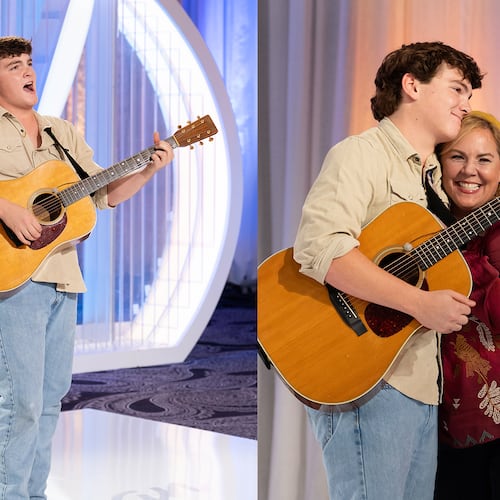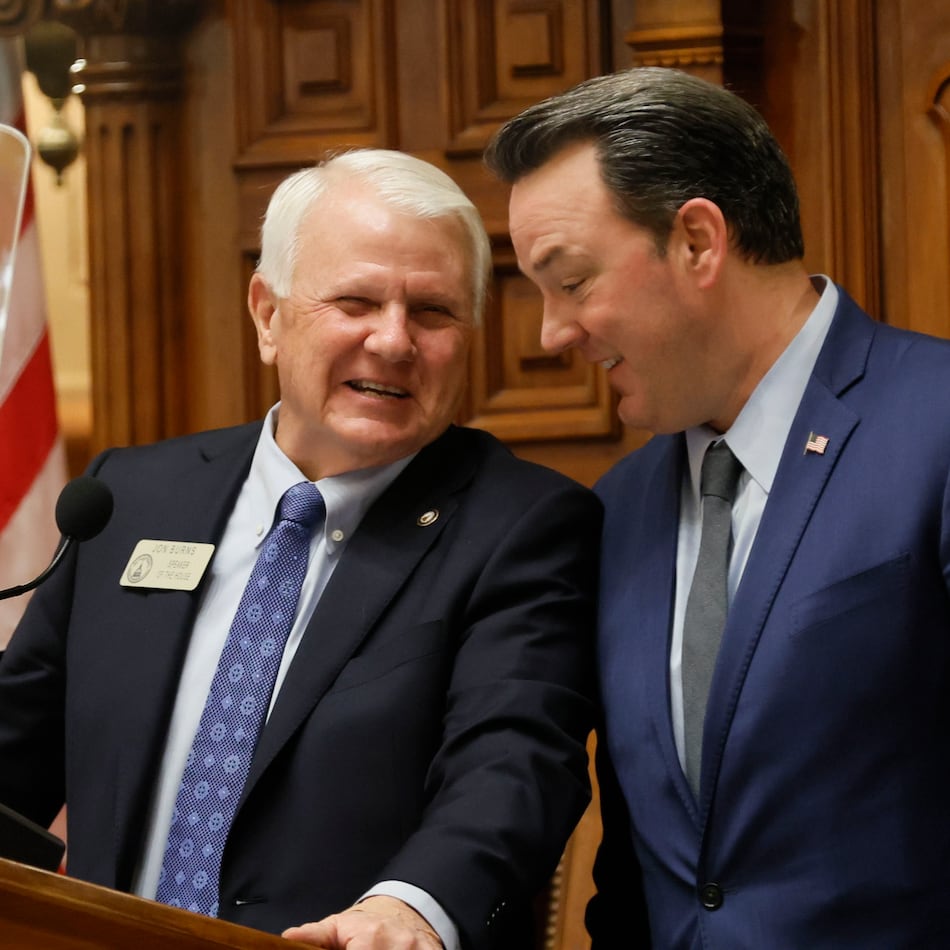This month, WABE celebrates its 75th anniversary as a mainstay in the Atlanta community, the dominant National Public Radio affiliate with a burgeoning local news and podcast operation and ambitious plans to grow even more.
But WABE’s road to its current position has not always been a smooth one and was hardly preordained given its modest beginnings.
In 1948, the Atlanta Board of Education, with help from the Rich’s department store foundation, started the station on the then-nascent FM dial to provide educational content to its students, the first of its kind in the Southeast.x3
Credit: AJC FILE PHOTO
Credit: AJC FILE PHOTO
Chuck Taylor, an active WABE board member from 1998 until 2021, said his grandmother Esther Taylor used to read classical musicology lectures for the schools via the radio station.
WABE added a TV station in 1957 and by 1971, the radio station had become a National Public Radio affiliate while also playing mostly classical music. But for much of its early run, it was a sleepy operation packed with retired teachers and school administrators and heavily subsidized by the school system.
It wasn’t until 1982 that the educational programming was finally taken off 90.1 and placed on a subchannel, said Lois Reitzes, the station’s longest running host going back to 1979. (She was program director from 1994 to 2007 when the station was a true classical/news hybrid.)
In 1986, the board hired Adrienne Dowling, who had public TV experience, but she butted heads with the school system administrators and lost her job in 1993. She sued. Donations dropped so sharply, some advisory board members at the time worried WABE could end up going off the air.
Some board members wanted APS out of the business of running a radio station and sued, saying it fell outside the scope of the school system’s charter. The school system came up with a compromise: the creation of the Atlanta Educational Telecommunications Collaborative Inc. (AETC), a nonprofit coalition formed in late 1993 to take over management of the station. They placed two of those who sued on the board and the lawsuit was withdrawn.
AETC in 1995 hired Milton Clipper, assistant general manager at a public TV station licensed to historically Black Howard University in Washington, D.C., to right the ship.
“We brought in qualified people,” said Kevin Ross, legal counsel for WABE since the mid-1990s. “We stopped being a dumping ground for problem school employees. We had control over hiring and firing.”
Credit: AJC file photo
Credit: AJC file photo
Clipper replaced dated 1960s-era studio equipment and tightened up financial controls. He also revamped the fund-raising program and boosted annual membership to 30,000 by 1999.
“Under Milton, we became a much more professional operation,” Taylor said. By the late 2000s, Clipper was able to reduce APS’s annual subsidy to the operation to zero.
Clipper, who remained CEO of AETC for 20 years until he retired in 2015, also rebuffed efforts by much larger state-wide operation Georgia Public Broadcasting to buy out AETC. He strongly believed it was better off independent, wary of how GPB often faced political pressure from the legislature since almost half its budget typically comes from the state.
This arrangement has not kept WABE immune to the whims of various APS superintendents. Ross said some have tried to monetize the operation for their own needs or demanded the newsroom act as a public relations arm for the school system, efforts the board of directors resisted.
“We’ve had our struggles with different administrations, but we’ve always stayed the course,” Ross said.
Rose Scott, a host who has been with WABE since 2007, said during the APS cheating scandal more than a decade ago, she never felt hamstrung by Clipper or his general manager John Weatherford about covering often less than flattering news.
By the mid-2010s, the radio station was getting more donations during its NPR programs than its classical music shows. So in 2015, WABE took a major risk and dropped classical music, which upset many fans who picketed and protested to no avail.
Under Wonya Lucas from 2015 to 2020 and current chief Jennifer Dorian, both Turner Broadcasting alums, news and talk programming has diversified and expanded, as has WABE’s staff.
The station in recent years has invested heavily in local news, going from skeletal newsroom staff of four in 2008 to 25 today. “The parking lot wasn’t even paved when I first got here,” said Scott, host of the daily show “Closer Look,” which has become one of WABE’s signature programs since it debuted in 2015.
Credit: Ben Gray
Credit: Ben Gray
Last year, for the first time in WABE’s history, the station started a special Transformation Fund to upgrade infrastructure, create new programming and seek out new income sources in places like digital video and syndication. The Woodruff Foundation donated $2.5 million, the largest single gift ever given to WABE, and after a year, the fund has so far collected $6.5 million.
Ross said Dorian’s deep connections in Atlanta’s philanthropic community helped them build up the fund.
“We want to make ourselves more sustainable in the long run,” Dorian said. “We can’t just be terrestrial radio and TV and expect to reach everybody in our dynamic town.”
Last year, she also decided to merge three names: corporate name Public Broadcasting Atlanta, radio station WABE and TV station WPBA into one over-arching name: WABE.
“WABE has the most brand equity,” said WABE board chairman Ken Bernhardt, a marketing consultant and professor emeritus at Georgia State University. PBA, he said, was too similar to GPB. When Dorian joined WABE, a couple of her friends congratulated her and said they donated to the station ― except they donated to GPB.
WABE, which now has a $17 million budget, earlier this year created its very first original TV show it has pitched nationally: “Love & Respect with Killer Mike” featuring the legendary hip-hop artist interviewing people like Tyler Perry, Herschel Walker and Jack White. It was been picked up by 58% of PBS stations nationwide. (They are still seeking funding for a second season.)
The station’s latest offerings include a new podcast about TV and film (”Boom!”); a new weekend show featuring Renee Montgomery, WNBA champion and part owner of the Atlanta Dream; and the second season of “Sounds Like ATL,” in which a variety of Georgia artists perform and discuss their music at WABE Studios, which Dorian said has been vastly underutilized over the years.
“The public broadcasting charter is to help underserved communities,” Dorian said. “Pluralism. Diversity. We’re able to do that with the people we hire and the pipelines of talent we’re developing with our content.”
The radio station is adjusting to shifts in listening patterns, with 25% now streaming. WABE estimates it now reaches 1 million people a month and has 40,000 annual individual donors and 300 underwriters.
And for the first time, the station is partnering with The Atlanta Journal-Constitution to expand the AJC’s “Politically Georgia” podcast into hour-long program for daily broadcast beginning on Oct. 30. It will feature AJC reporters Greg Bluestein, Patricia Murphy and Tia Mitchell along with Bill Nigut, who was recently let go by GPB and is now employed by the AJC.
Credit: Ben Gray
Credit: Ben Gray
WABE lost money last fiscal year, Bernhardt said. “It was really investments to respond to changing consumer behavior,” he said. “We have a healthy reserve that has enabled us to position the station for the future.”
AETC has a licensing agreement with APS, but instead of the previous run of short five-year deals, APS superintendent Lisa Herring in 2021 gave AETC a 15-year deal. “This gives us more stability than we’ve ever had,” Ross said.
WABE timeline
About the Author
Keep Reading
The Latest
Featured





